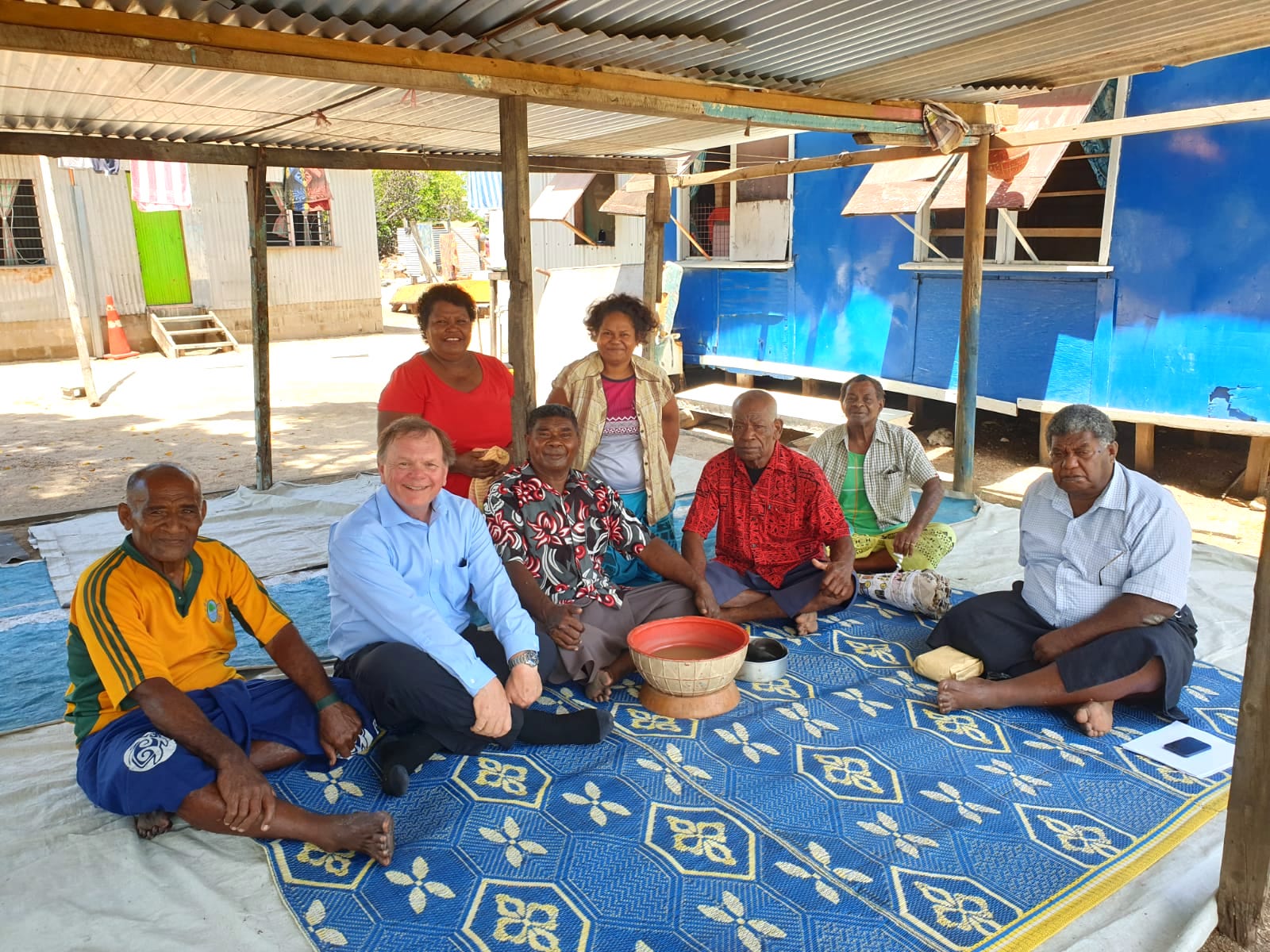HELLO! CURA IS THE TELEMEDICINE STARTUP

BEntrepreneur Magazine sat down with Mohammed Zekrellah, co-founder of Cura to learn about his business inspiration, how his company disrupted the process and business of medicine and their advice to startups (never scale early!)
Can you tell us more about Cura and what inspired you to create the business?
 Cura is a telemedicine startup that is obsessed with solving healthcare accessibility problems in the MENA region and is on a mission to change the way we see doctors today. We do that by disrupting the medical consultations market and giving people the ability to consult doctors directly without booking appointments using real-time instant messaging & live voice and video calls directly from our mobile app that they install on their smartphones. We launched three years ago and today, Cura is the largest tele-health provider for consumers in the Middle East with a network of 1500 verified doctors serving 150K users. Cura operates mainly in Saudi and soft launched in Bahrain, Egypt and Turkey. We are also the official telemedicine provider for the Ministry of Health in Saudi Arabia developing and launching their first telemedicine initiative to serve nation-wide Saudi citizens through a mobile app called ’Sehha’. In 2017, Cura was recognized by Forbes as one of the top 100 startups in MENA and the 12th hottest startup in Saudi.
Cura is a telemedicine startup that is obsessed with solving healthcare accessibility problems in the MENA region and is on a mission to change the way we see doctors today. We do that by disrupting the medical consultations market and giving people the ability to consult doctors directly without booking appointments using real-time instant messaging & live voice and video calls directly from our mobile app that they install on their smartphones. We launched three years ago and today, Cura is the largest tele-health provider for consumers in the Middle East with a network of 1500 verified doctors serving 150K users. Cura operates mainly in Saudi and soft launched in Bahrain, Egypt and Turkey. We are also the official telemedicine provider for the Ministry of Health in Saudi Arabia developing and launching their first telemedicine initiative to serve nation-wide Saudi citizens through a mobile app called ’Sehha’. In 2017, Cura was recognized by Forbes as one of the top 100 startups in MENA and the 12th hottest startup in Saudi.
Our inspiration to start Cura came from the fact that both myself and my co-founder (Wael Kabli) come from a technical software engineering background (computer science and software engineering) and we had long careers in international enterprise software development companies yet we always wanted to build something for ourselves that would make us feel proud and would make an impact on people’s lives. We came to a point in our careers where we thought it’s time now to start an entrepreneurial journey and create a business. We brainstormed a lot of ideas and we thought that healthcare isn’t getting enough technical innovation and attention and we said to ourselves, it’s unbelievable that in the MENA region, people can’t see and consult doctors online without the need to book appointments and physically see them. Wael also had a personal story of having to see a doctor for his daughter and skip a day of work for no actual urgency. All of that collectively inspired us to create Cura and that’s how it all started.
The concept for Cura can highly revolutionize the process and business of medicine. Why is this important especially in the Middle East?
 Today, healthcare systems around the world including the Middle East’s are mostly reactive instead of proactive. They follow a ‘sick care’ approach to healthcare in which you are only assigned a physician when you are already sick. Payment subsidizations issues, insurance issues, lack of doctors in less-fortunate rural areas and extremely far ahead scheduled appointments only make it harder and more painful. Telemedicine is one way to provide a healthcare service that is so convenient that it encourages people to ask and follow-up on their medical conditions to prevent further complications and worsened conditions. It also helps relieve the load on the current health care systems by capturing workloads that do not require the patients’ physical existence with the doctor. This will free hospitals to serve more targeted cases, improve patients’ convenience and experience, utilize doctors more efficiently, democratize patients’ rights to access same quality healthcare no matter where their location is (rural areas or in the capital). However, for all of that to happen on a large scale, government, hospitals, insurance, doctors and healthcare startups all need to work together to fix the current healthcare system. Cura couldn’t wait for all of that to happen and has taken it as part of its mission to help realize a Middle East where this is actually happening. So, we took a head-start and created a telemedicine platform accessible from mobile phones (iOS & Android), invited doctors to participate and opened it to consumers and the result is that we have conducted hundreds of thousands of telemedicine consultations to date. Furthermore, we have expanded our services to capture the true potential of technology and telemedicine in order to live healthier as nations and people by providing wellbeing and wellness treatment programs where telepsychiatry and psychotherapy are provided through our apps (i.e depression management, CBT sessions, social anxiety treatment, etc…).
Today, healthcare systems around the world including the Middle East’s are mostly reactive instead of proactive. They follow a ‘sick care’ approach to healthcare in which you are only assigned a physician when you are already sick. Payment subsidizations issues, insurance issues, lack of doctors in less-fortunate rural areas and extremely far ahead scheduled appointments only make it harder and more painful. Telemedicine is one way to provide a healthcare service that is so convenient that it encourages people to ask and follow-up on their medical conditions to prevent further complications and worsened conditions. It also helps relieve the load on the current health care systems by capturing workloads that do not require the patients’ physical existence with the doctor. This will free hospitals to serve more targeted cases, improve patients’ convenience and experience, utilize doctors more efficiently, democratize patients’ rights to access same quality healthcare no matter where their location is (rural areas or in the capital). However, for all of that to happen on a large scale, government, hospitals, insurance, doctors and healthcare startups all need to work together to fix the current healthcare system. Cura couldn’t wait for all of that to happen and has taken it as part of its mission to help realize a Middle East where this is actually happening. So, we took a head-start and created a telemedicine platform accessible from mobile phones (iOS & Android), invited doctors to participate and opened it to consumers and the result is that we have conducted hundreds of thousands of telemedicine consultations to date. Furthermore, we have expanded our services to capture the true potential of technology and telemedicine in order to live healthier as nations and people by providing wellbeing and wellness treatment programs where telepsychiatry and psychotherapy are provided through our apps (i.e depression management, CBT sessions, social anxiety treatment, etc…).
What do you think has led you to success in being named one of the Top 100 Startups in the Arab World by Forbes Middle East?
I would say it’s the collective reasons of many things including having a senior founding team (10+ years of software industry experience), penetrating a tough industry such as telemedicine, excellent approach to technology and product design, very good execution and traction and growth hacking, good idea with a big market size and a scalable business model.
What were the challenges that you faced in starting your business and how were you able to overcome these challenges?
We faced many challenges, some we were able to overcome and some we are still working on till now. To name a few:
• Lack of Regulations: Telemedicine is not regulated in most MENA countries if at all.
When we started back in 2014 in Saudi Arabia, we had this huge risk of being shutdown since there was no authority to regulate, approve or disapprove our use of telemedicine. However, we decided to keep going anyway and we worked with the Ministry of Health in Saudi Arabia to push for regulations. Today, after 3 years, we are proud to say that we are among the first few if not the first licensed Telemedicine Service Providers in Saudi Arabia.
• Lack of Awareness: Telemedicine is a known industry in Europe & USA. Yet, in MENA it has very few public offerings or general wide spread use resulting in general lack of awareness causing issues in sales growth, product/market fit, profitability, etc… However, having excellent internet and mobile phones penetration rates in the general population, curiosity and love of exploring new things by the youth, lots of marketing and growth hacking tactics and increased introduction of telemedicine by the government in later years, all helped a lot in raising awareness around telemedicine and therefore encouraging its usage.
• Lack of Talent: We are more of a technology startup than a healthcare one and we have a technically complex product spanning multiple technologies stacks which meant that accessing a large pool of tech talent in a cost-effective way, retaining them and scaling them is one of the most important aspects of growth. We had many issues finding such talents in the region and still do. To mitigate that, we opened in multiple countries to utilize the best talent of specific tech stack each country has to offer, started creating a very solid tech orientation program where new hires get trained and are expected to catch up very quickly, build tech capability in the junior team members and grow them into seniors, focus on creating a nice culture to attract external talents and we are still exploring other solutions to overcome this challenge.
What advice can you give to startups, especially those in the Health & Wellness field?
Some tips from my personal experience:
• Dodge the bullets: Generally, I would say that with startups, there are a thousand ways where it could go wrong and only a few ways where it goes right. The problem is that you won’t know those few ways until you have experimented a lot. Experimentation means that you need more time to stick around and exist as a startup and for that, you need to eliminate any sources of threats that could potentially kill your business. We have embraced this culture of ‘Risk Avoidance’ behavior and philosophy to ‘dodge the bullets’ ever since we started. We do that by proactively thinking and searching for how things could go wrong (like running out of cash, not finding an investor, not growing in sales, proving business model, proving demand, etc..) and actually start doing work to either avoid/kill that risk early-on or validate its potential to happen and do mitigation and damage control. This philosophy helped us survive quite some time, challenge any comfort zones, avoid failure or fail-early, and prove things much early on.
• Never scale early: Scaling technology, people and processes is a science and an art that requires dedication, funding and tons of proven sales and growth to justify it. If you do that very early on, you are like a very skinny guy lifting 500 lbs. of weight. You lose the agility and freedom of startups so you can’t move fast enough to innovate and yet you end up with the scalability of an enterprise but without enough business/sales to justify all the costs associated with it. Don’t over engineer here and scale only when the time is right and leave each stage’s problem to be handled in that stage not before. It’s always better to re-write your backend code when you are in scale mode rather than designing the whole thing with enterprise scalability from day 1 thus losing tons of valuable time you need to prove the business/demand in the first place.
• Be careful with generic startup advice: Startup advice is very tricky. I discovered that most of it is true ‘but only’ in the ‘stage’ it was meant for. Seed stage advice doesn’t work for pre-seed stage. Scale ups advice doesn’t work for seed stage, etc… It’s important to know which stage that advice was meant for. To make things worse, those advices could totally contradict each other given the stage they are in. So be careful.
For more information:
www.cura.healthcare















